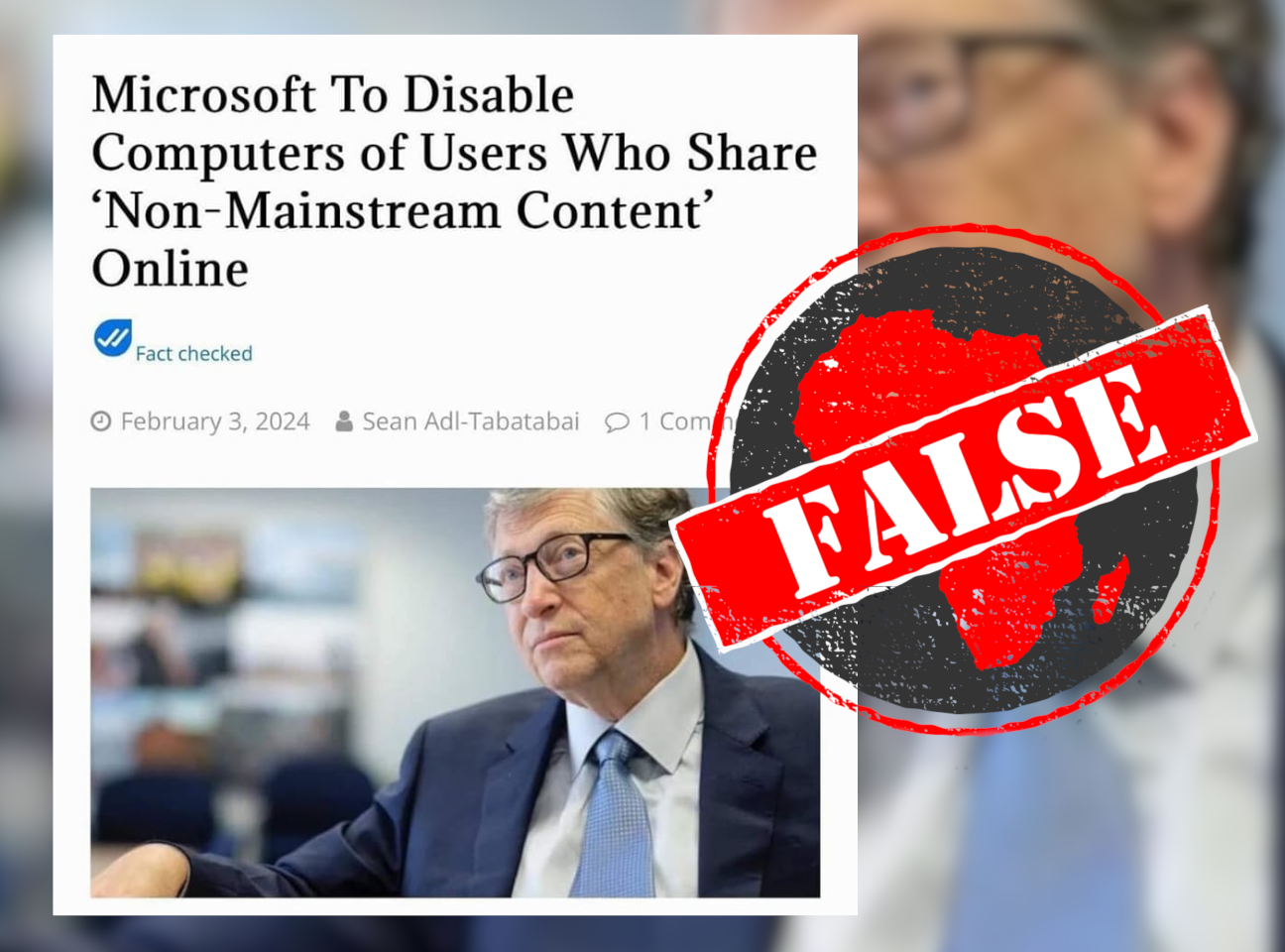IN SHORT: A known disseminator of disinformation is at it again, pushing the lie that Microsoft’s chief executive has admitted the tech company will “disable” the computers of users whose views it doesn’t agree with. There’s absolutely no evidence for this.
“Microsoft to disable computers of users who share ‘non-mainstream content’ online,” reads the headline of an article circulating on social media in Nigeria, South Africa, Somalia and elsewhere since early February 2024.
The article was published on 3 February by the People’s Voice. The website, previously known as News Punch, is widely known for spreading false information. The piece was then republished on Planet Today, another disinformation site.
It includes a photo of Bill Gates, co-founder of the tech company Microsoft. Gates, a frequent target of conspiracy theories, stepped down from the Microsoft board in 2020. (Disclaimer: The Bill & Melinda Gates Foundation contributed to 15% of Africa Check’s funding in 2022.)
Microsoft’s chief executive is Satya Nadella, who has held the position since 2014.
The People’s Voice bases its entire claim – which also appears here, here and here – on a four-minute, 38-second interview with Nadella by Lester Holt, a journalist for US broadcaster NBC News.
The interview was uploaded to YouTube on 31 January with the title: “Exclusive: Microsoft CEO Nadella on the promise and problems of A.I.”
Does Nadella reveal in the interview that Microsoft plans to disable computers used to post “non-mainstream content” online? And what exactly is “non-mainstream content”?

No mention of disabling computers
At no point in the interview does Nadella say that his company would disable computers.
Instead, he discusses artificial intelligence and the challenge of disinformation in the run-up to the 2024 US elections, set for November.
The claim is simply false.
The People’s Voice article also doesn’t say what it means by “non-mainstream content”. But it dismisses the idea of false information with phrases like “so-called ‘misinformation’” and “what [Nadella] identified as disinformation”.
It’s clear that “non-mainstream content” is just a clunky euphemism for what’s more widely known as “fake news”.
Republish our content for free
For publishers: what to do if your post is rated false
A fact-checker has rated your Facebook or Instagram post as “false”, “altered”, “partly false” or “missing context”. This could have serious consequences. What do you do?
Click on our guide for the steps you should follow.
Publishers guideAfrica Check teams up with Facebook
Africa Check is a partner in Meta's third-party fact-checking programme to help stop the spread of false information on social media.
The content we rate as “false” will be downgraded on Facebook and Instagram. This means fewer people will see it.
You can also help identify false information on Facebook. This guide explains how.


Add new comment